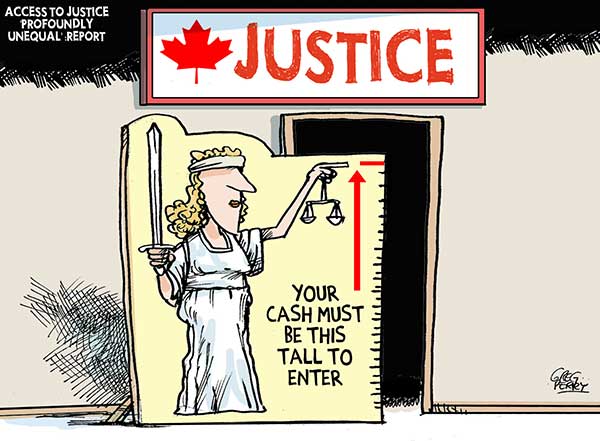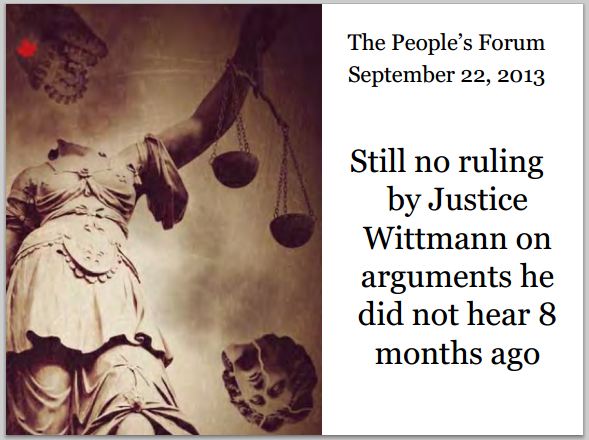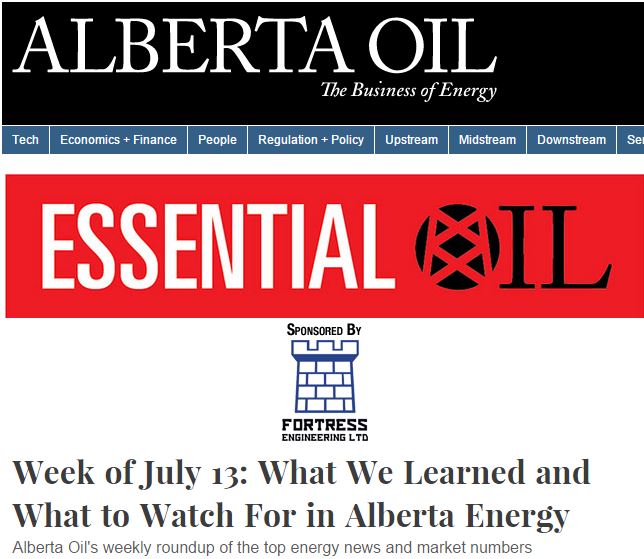Week of July 13: What We Learned and What to Watch For in Alberta Energy Alberta Oil’s weekly roundup of the top energy news and market numbers by Jesse Snyder, July 13, 2015, Essential Oil, Alberta Oil Magazine
WHAT WE LEARNED
…
A motion to dismiss a landmark fracking case was overruled. The Supreme Court of Canada rejected a motion from the Alberta Energy Regulator that claimed a lawsuit over fracking and groundwater contamination should be dismissed on the grounds that it does not raise a significant “constitutional question.” Chief Justice Beverley McLachlin said in her ruling that an immunity clause enjoyed by the AER should not protect the regulator from allegations leveled against it based upon legal rights in the Charter of Rights and Freedoms. The ruling is part of a $33-million lawsuit by Jessica Ernst over water contamination on her property allegedly caused by Encana’s fracking operations over 10 years ago. Last year the Alberta Court of Appeal ruled that Ernst could not sue the province’s regulator, which Ernst alleges breached her constitutional rights by deeming her a “security threat” and neglecting to communicate with her when the allegations were first made. The AER was then called the Energy Resources Conservation Board (ERCB).
[It was actually the EUB at the time of the Charter violations and covering up Encana breaking the law and fracturing Rosebud’s drinking water aquifers and diverting fresh water without a permit under the Water Act. After the EUB got caught breaking the law and spying on innocent Albertans, the (now ousted) Tory government changed the EUB to the ERCB. After the Ernst lawsuit, the government changed the ERCB to the AER. What will they call it next? Protti-Ville DeRegulator, the PVD?]
[Refer also to:
Editorial: Justice denied for Middle Class
With access to justice becoming a central concern, the Supreme Court of Canada sent a strong message about the issue last week with its decision in Trial Lawyers Association of British Columbia v. British Columbia (Attorney General).
The case related to a custody dispute that resulted in fees of $3,600 for 10 days of hearings. One of the parties couldn’t afford that amount, and the trial judge in the case eventually found the fee schedule was unconstitutional. Last week, the majority of the Supreme Court agreed with that finding. “A fee that is so high that it requires litigants who are not impoverished to sacrifice reasonable expenses in order to bring a claim may, absent adequate exemptions, be unconstitutional because it subjects litigants to undue hardship, thereby effectively preventing access to the courts,” wrote Chief Justice Beverley McLachlin in last week’s ruling in the B.C. case.
“It is the role of the provincial legislatures to devise a constitutionally compliant hearing fee scheme. But as a general rule, hearing fees must be coupled with an exemption that allows judges to waive the fees for people who cannot, by reason of their financial situation, bring non‑frivolous or non‑vexatious litigation to court. A hearing fee scheme can include an exemption for the truly impoverished, but the hearing fees must be set at an amount such that anyone who is not impoverished can afford them.
While Ontario doesn’t have such fees, the case is a reminder about the need in general for governments to devise rules that are fair. One of the issues in this case that’s certainly relevant to arguments over things like legal aid is the fact that while the rules may be reasonable for the poorest litigants, they’re not really fair for those who earn modest incomes that aren’t sufficient for paying for both legal representation and steep court fees. In last week’s case, the B.C. rules now in place provide for an exemption from the fees if the court finds a person to be “impoverished.” As the Supreme Court found, that’s not good enough for those with incomes just above that threshold.
The case, then, is a good example of why we keep talking about access to justice. It also demonstrates why Canada’s political discourse of late has focused so much on the challenges facing the middle class. It’s clear that in many areas, including the justice system, governments need to do more to address that gap.
— Glenn Kauth
[Refer also to:

And, on top of legal fees and court costs bankrupting plaintiffs, what about excessive and endless delays in Alberta courts, and interference by the federal government? Is there enough time in one person’s life to do a lawsuit and not gag and settle?

Slide from Ernst presentation in Stephenville, NL

